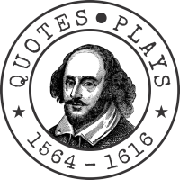
Banquo is a general in King Duncan’s army, just like Macbeth. Both Banquo and Macbeth are projected as brave hearts, in the beginning of the play, who won the battle against the enemy. The first difference between him and Macbeth is spotted, when they were having interaction with witches. While both of them were eager to know about the predictions, that witches made, but Banquo can clearly see the evil sign in ACT 1 Scene 3.
But ’tis strange.
And oftentimes, to win us to our harm,
The instruments of darkness tell us truths,
Win us with honest trifles, to betray ’s
In deepest consequence. (ACT 1, Scene 3)
According to him, the agents of evil, often tells us half truth, which leads us to our destruction. He sounds much logical and true here. His words and composure didn’t show any sign of anxiety, even after the witches prediction that he will be the father of Kings. It appears that he is not letting the words by evil creatures act upon his conscience. While it is completely opposite in the case of Macbeth. We can see his inner turmoil and his inclination to know more about future. This scene shows that the character of Banquo, though ambitious, but can’t be manipulated. He can control his desires, lust, and greed.
We see another characteristic trait, when King Duncan welcomes Banquo and Macbeth.
Welcome hither.
I have begun to plant thee, and will labor
To make thee full of growing. (to BANQUO) Noble Banquo,
That hast no less deserved, nor must be known
No less to have done so, let me infold thee
And hold thee to my heart. – DUNCAN
We can see that King Duncan honored Macbeth with the title of thane of Cawdor, while he only shows his love and gratitude to Banquo. Anyone in this situation would feel jealous because both Banquo and Macbeth fought the same battle with bravery. This further displays the noble character of Banquo, who is just satisfied with whatever little or big is bestowed upon him.
We get to know more about the nobility of Banquo’s character in his conversation with Macbeth in Act 2, scene 1. In the scene Macbeth tries to lure him, with something good, that will come to him, if he follows Macbeth. Banquo replied that he will follow him until his conscience allowed it to do so.
If you shall cleave to my consent, when ’tis,
It shall make honor for you. -Macbeth
So I lose none
In seeking to augment it, but still keep
My bosom franchised and allegiance clear,
I shall be counselled. – Banquo
He was the first to realize the truth behind king’s murder, in ACT 3, Scene 1.
Thou hast it now: king, Cawdor, Glamis, all,
As the weird women promised, and I fear
Thou played’st most foully for ’t. (ACT 3, Scene 1)
He is wise enough to guess, that Macbeth is the real culprit, even though the evidence and circumstances were against Duncan’s sons and servants. When he was stabbed by murderers, he knew who is behind this evil deed and he commanded his son Fleance to run away, because he knew, that after killing king Duncan, his next target will be him and his son, because according to the predictions by witches, he will be father of the Kings.
Even Macbeth is afraid of Banquo’s character. According to him, he fears the nobility of his character. He is willing to take risks and yet stay safe and secure. His mind is always working in right direction.
Our fears in Banquo
Stick deep, and in his royalty of nature
Reigns that which would be feared. ‘Tis much he dares,
And to that dauntless temper of his mind
He hath a wisdom that doth guide his valor
To act in safety. – MACBETH (ACT 3, Scene 1)
In short, Banquo was a wise man, but not wise enough to escape his murder. He was ambitious, but not ambitious enough to take any evil action in order to realize his ambition. He has a noble and firm character. He good general, who will always be on right side.
READ: Macbeth Characters List
